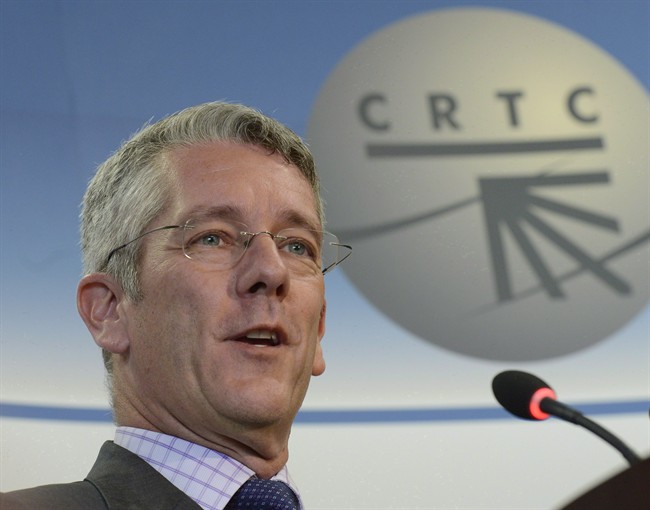How about a lower cellphone bill for Christmas?

Okay, that might be premature to suggest. But how about a decision that could lead to lower wireless bills by Christmas.
While it’s far too soon to say what exactly will come from hearings that kick off Monday in Gatineau, Que. about the future of wholesale wireless prices in Canada, a decision is forthcoming from regulators which could help bring down mobile bills across the country, experts say.
“The hearings are focused on lowering costs for Canadian wireless customers ultimately,” Iain Grant, principal analyst at telecom consultancy SeaBoard Group said.
At the heart of the hearings are so-called mandated wholesale roaming rates, or how much smaller cellphone providers like Wind Mobile and Videotron in Quebec pay the big network owners — Rogers, Bell and Telus — every time a customer wanders out from the coverage area of the small provider and onto one of the Big 3’s networks (which blanket the country).
READ MORE: What’s the best, cheapest Canadian cellphone plan out there?
Those roaming costs, which are typically passed onto the new carrier’s customers, are punitive, some experts say. The high rates have stifled the ability for new carriers to win more subscribers and to compete effectively against the Big 3. Regulators at the CRTC now want to reduce those “wholesale” roaming rates substantially to assist the smaller carriers.
Some experts suggest a decision at the CRTC to directly step into wholesale price management represents a big shift for regulators and the industry. To start, the CRTC has refrained from actually setting Canadian wireless prices to date – to do so would be a big first.
- Premier Moe responds to Trudeau’s ‘good luck with that’ comment
- Drumheller hoping to break record for ‘largest gathering of people dressed as dinosaurs’
- As Canada’s tax deadline nears, what happens if you don’t file your return?
- Planning a summer trip to Quebec’s Îles-de-la-Madeleine? You’ll have to pay up
Some suggest drastically lower roaming rates between big and small carriers will save the latter a lot of money that can be used to attract new customers.
At the high end, estimates suggest as many as one in five mobile customers (or 20 per cent) could well make the switch to a new entrant over the next couple of years – a substantial jump in the group’s current total market share of 5 per cent.
Consumer benefits
Here’s where this benefits consumers: With three, four or even five million combined wireless subscribers, new entrants suddenly become a meaningful thorn in the side of Rogers, Bell and Telus.
The average revenue per subscriber at Wind Mobile is about $30 per month. At Videotron, it’s just over $41. Those rates compare to average monthly revenue per contract customer at Rogers, Bell and Telus of around $60, respectively, experts say. Monthly bills at the Big 3 are likely to feel some pressure to close the gap — i.e., come down.
READ MORE: Regulators move to help smaller carriers
That assumes a lot, though — too much perhaps.
‘The chances of new entrant success are largely out of the regulators’ control.’
Others suggest the wholesale roaming issue alone isn’t enough to lift Wind Mobile, which has struggled to win over customers and recently swapped ownership groups, into a viable long-term national player. It may not be enough to convince Videotron to expand services outside of Quebec, either.
READ MORE: Slower growth hits wireless market, and consumers stand to gain
The new carriers still need to come up with huge amounts of cash to invest in expanding capacity on their fledging networks in order to offer services comparable to the Big 3, a risky gambit the CRTC holds little influence over.
“Consequently, the chances of new entrant success are largely out of the regulators’ control,” Dvai Ghose, a telecom investment expert at Canaccord Genuity, said on Monday.
The CRTC will issue its decision by the end of the year, or before Christmas.




Comments